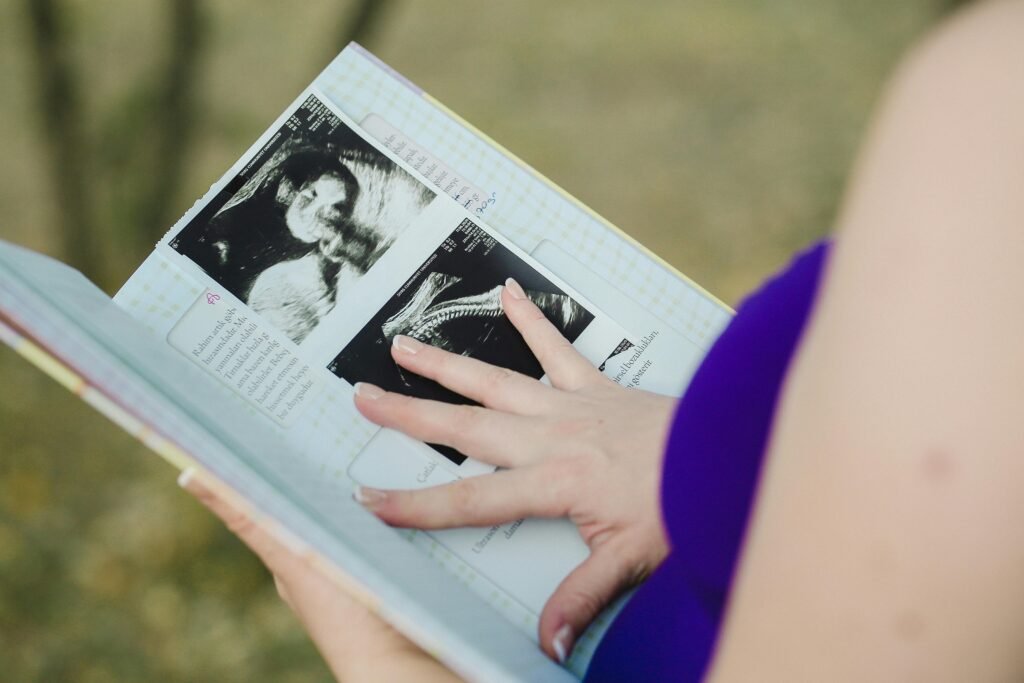
Introduction to Personal Growth in Relationships
Personal growth and relationships are deeply interconnected, each influencing the other in meaningful ways.
As individuals, we constantly evolve, and this evolution shapes how we interact with those we care about.
When we commit to self-improvement, it has a ripple effect, enriching our relationships and making them more robust.
One significant aspect of personal growth is developing a greater sense of self-awareness.
Understanding who you are, what you value, and what you need is crucial in forming and maintaining healthy relationships.
For example, if you know that you value honesty and open communication, you are more likely to seek out and cultivate relationships that align with these values.
Furthermore, as you grow, your ability to empathize and understand your partner’s perspective also enhances.
This mutual understanding fosters a supportive and nurturing environment, allowing both individuals to flourish.
For instance, if you recognize that your partner needs space to recharge after a long day, respecting that need can lead to a more harmonious relationship.
Additionally, personal development often involves learning new skills that can directly benefit your relationship.
Communication skills, such as active listening and expressing yourself clearly, are essential for any healthy partnership.
By improving these skills, you can navigate conflicts more effectively and build a stronger connection with your partner.
Engaging in personal growth activities, whether individually or together, can also bring new experiences and perspectives into your relationship.
Trying new hobbies, pursuing education, or setting personal goals can invigorate your relationship with fresh energy and shared excitement.
For instance, taking a cooking class together can not only be a fun activity but also a way to learn more about each other’s preferences and work as a team.
In essence, the journey of personal development is not a solitary one.
It weaves into the fabric of your relationships, enhancing them in countless ways.
As you grow and evolve, so too does your ability to contribute positively to your relationships, making them more fulfilling and resilient.
Understanding Your Own Needs and Desires

Identifying your needs in a relationship is vital for both self-awareness and personal development.
Begin by reflecting on what genuinely matters to you.
Consider your core values, desires, and expectations from your partner.
Tools like journaling and meditation can help you delve deeper into your thoughts and feelings.
Writing about your experiences and emotions can provide clarity on your relationship needs and preferences.
Self-awareness is key to enhancing relationship dynamics.
By understanding your own needs, you can communicate them more effectively to your partner, reducing misunderstandings and fostering a stronger connection.
For example, if you recognize that you need quality time together, you can prioritize activities that strengthen your bond.
Being in tune with your desires creates a foundation for a healthier and more fulfilling relationship.
Another important aspect of understanding your needs is identifying what triggers negative emotions.
For instance, if you notice that you feel anxious or upset when certain topics are brought up, this can indicate underlying needs or boundaries that need to be addressed.
Acknowledging these triggers can help you communicate more openly with your partner and work towards resolving any issues.
Exploring your interests and passions is also crucial for personal development.
Pursuing hobbies and activities that you enjoy not only brings personal satisfaction but can also provide insight into what you value in life.
Sharing these interests with your partner can lead to deeper mutual understanding and shared experiences.
For example, if you love hiking, inviting your partner on a hike can be a way to connect on a new level.
Additionally, understanding your needs involves being honest about your limitations and boundaries.
It’s important to recognize when you need space or time for yourself.
Communicating these needs to your partner can prevent feelings of being overwhelmed and promote a healthier relationship dynamic.
For example, if you need alone time to recharge, expressing this to your partner can help maintain balance and respect within the relationship.
Overall, understanding your own needs and desires requires introspection and honest communication.
By taking the time to reflect on what matters to you and effectively expressing it to your partner, you can create a more harmonious and supportive relationship.
Communication as a Tool for Growth

Effective communication is pivotal for personal growth in relationships.
To foster this growth, it’s essential to practice active listening.
This means giving your full attention to your partner’s words, without planning your response while they are speaking.
Instead, absorb their message completely before replying.
Reflective listening, where you rephrase what your partner has said to confirm your understanding, can also be invaluable in ensuring both parties feel heard and understood.
Open and honest dialogues help build stronger connections.
Couples who regularly discuss their goals, feelings, and concerns tend to have more resilient relationships.
For instance, sharing your dreams and aspirations with your partner can create a supportive environment where both of you feel encouraged to pursue personal growth.
Similarly, talking openly about fears or anxieties can foster mutual support and empathy.
Clear communication can prevent misunderstandings that might otherwise lead to conflict.
By expressing your feelings and needs straightforwardly, you help your partner understand your perspective, reducing the chances of miscommunication.
For example, instead of saying, “You never spend time with me,” you could say, “I feel lonely when we don’t have time together.
Can we plan a date night?”
It’s also important to be mindful of non-verbal communication.
Body language, facial expressions, and tone of voice all convey emotions and intentions.
Being aware of these cues can help you interpret your partner’s feelings more accurately and respond appropriately.
For instance, noticing that your partner seems tense can prompt you to ask if something is bothering them, opening the door to a meaningful conversation.
Regularly practicing gratitude and appreciation through communication can also strengthen your bond.
Acknowledging your partner’s efforts and expressing thanks for the little things can go a long way in making them feel valued.
For example, a simple “I appreciate you making dinner tonight” can reinforce positive feelings and mutual respect.
Lastly, it’s crucial to establish an environment where both partners feel safe to express themselves without fear of judgment or criticism.
Creating this safe space encourages open dialogue and fosters a deeper emotional connection, paving the way for personal and relational growth.
Building Empathy and Compassion

Empathy is key to strengthening personal growth in relationships.
It involves truly understanding and sharing your partner’s emotions and experiences.
To cultivate empathy, focus on active listening and being fully present when your partner speaks.
This means setting aside your own thoughts and judgments to genuinely hear what your partner is expressing.
Practicing empathy also means validating your partner’s feelings, even if you don’t fully understand or agree with them.
For example, if your partner is upset about a situation at work, acknowledge their feelings by saying something like, “I can see that you’re really stressed about this.”
This simple act of validation can make your partner feel seen and supported.
Compassion goes hand-in-hand with empathy and involves taking action to alleviate your partner’s distress.
Small gestures of kindness, like offering a comforting word or helping out with daily tasks when your partner is overwhelmed, can significantly impact the emotional climate of your relationship.
For instance, if your partner has had a tough day, preparing their favorite meal or giving them a hug can show your support and care.
Another way to build empathy is through shared experiences.
Spending quality time together and engaging in activities that your partner enjoys can help you see the world from their perspective.
Whether it’s participating in a hobby they love or simply spending time in their favorite environment, these shared moments can deepen your emotional connection.
Developing empathy also involves self-reflection.
Consider how your actions and words affect your partner.
Reflect on times when you may have been misunderstood or when you felt hurt, and use these experiences to guide your behavior in the relationship.
By being mindful of your impact on your partner, you can make more compassionate choices that strengthen your bond.
Incorporating empathy and compassion into your daily interactions creates a nurturing environment where both partners feel valued and understood.
This mutual understanding fosters a supportive relationship that allows both individuals to grow and thrive.
Setting Boundaries for Healthy Relationships

Setting boundaries is essential for maintaining balance and respect in a relationship.
They help establish what each person is comfortable with and ensure that both partners’ needs are met.
Clear boundaries prevent misunderstandings and reduce the likelihood of resentment building up over time.
Effective boundaries often begin with honest self-assessment.
Reflect on your personal limits and what you need to feel secure and respected.
Communicate these limits openly with your partner to foster mutual understanding.
For instance, you might need alone time to decompress after work.
Clearly expressing this need can help your partner understand your requirements for personal space.
Boundaries are not only about personal space but also about emotional limits.
For example, if certain topics cause you distress, it’s important to communicate this to your partner.
By setting a boundary around these discussions, you create a safer emotional environment.
Both partners should feel comfortable expressing their feelings and limits without fear of judgment.
Respecting your partner’s boundaries is equally important.
Mutual respect for each other’s limits fosters a healthier and more supportive relationship.
If your partner expresses a need for personal time, respecting that need can help them feel valued and understood.
This mutual respect strengthens the relationship and encourages personal growth for both individuals.
Boundaries can also relate to shared responsibilities.
Clearly dividing tasks and responsibilities ensures that one person does not feel overwhelmed or taken for granted.
Discussing and agreeing on who handles which tasks can prevent conflict and promote a sense of teamwork.
For example, deciding together who will handle household chores or financial planning can create a more balanced and harmonious living situation.
Healthy boundaries are flexible and can evolve as the relationship grows.
Regular check-ins with your partner to discuss any changes in your needs or limits are crucial.
This ongoing dialogue ensures that both partners remain aligned and feel supported as individuals and as a couple.
Adjusting boundaries as necessary allows the relationship to adapt and thrive over time.
Conflict Resolution and Personal Growth

Conflicts are inevitable in any relationship, but they offer opportunities for personal development.
Adopting positive strategies for conflict resolution, such as staying calm, expressing your feelings clearly, and seeking compromise, can transform disagreements into growth experiences.
For instance, staying calm allows both partners to think more rationally and avoid saying things they might regret later.
Clearly expressing your feelings helps your partner understand your perspective, reducing the chances of misunderstandings.
Seeking compromise ensures that both parties feel their needs are being considered, fostering a sense of teamwork.
Overcoming challenges together can lead to personal development.
For example, a couple that successfully navigates a disagreement about finances may learn valuable communication and problem-solving skills.
These skills not only strengthen the relationship but also contribute to the growth of each partner.
By approaching conflicts with a growth mindset, you can turn challenges into opportunities for improvement.
It’s also essential to recognize and respect each other’s perspectives during conflicts.
Understanding that your partner may have a different viewpoint can help de-escalate tension and create a more constructive dialogue.
Practicing patience and empathy during these moments can lead to more meaningful resolutions.
Another important aspect of conflict resolution is the willingness to apologize and forgive.
A sincere apology acknowledges the hurt caused and opens the door for healing.
Forgiveness, on the other hand, allows both partners to move forward without holding onto past grievances.
This process can strengthen the emotional bond and promote a more resilient relationship.
Incorporating these strategies into your approach to conflict can turn potentially negative situations into opportunities for personal and relational growth.
By doing so, you not only resolve the immediate issue but also build a stronger foundation for future interactions.
Balancing Independence and Togetherness

Balancing independence and togetherness is key for a thriving relationship.
Each partner should have the freedom to pursue their own interests while also nurturing their bond.
Personal hobbies and activities, like painting, playing a sport, or reading, provide a sense of fulfillment and individuality.
These personal pursuits are essential for mental and emotional well-being and can help prevent feelings of being stifled or overly dependent.
Engaging in shared activities strengthens your connection.
Taking a cooking class, exploring new places together, or even a regular date night can inject excitement and novelty into your relationship.
These joint activities create shared memories and foster teamwork, reinforcing your bond.
Communication plays a vital role in balancing these aspects.
Discussing your individual and collective goals openly helps in setting mutual expectations.
For instance, if one partner wants to take up a new hobby that requires time alone, discussing how this fits into your shared schedule can prevent misunderstandings.
This approach allows both partners to feel supported in their personal growth while also prioritizing their relationship.
Respecting each other’s space and time is crucial.
Allowing your partner the freedom to unwind or engage in their hobbies without feeling guilty nurtures trust and mutual respect.
For example, if one of you enjoys a weekly game night with friends, respecting this time can foster a sense of independence and fulfillment.
Additionally, regular check-ins about your feelings and needs can ensure that both partners are content with the balance.
This ongoing dialogue helps in adjusting to each other’s evolving needs, maintaining a harmonious and dynamic relationship.
By fostering an environment where both independence and togetherness are valued, you create a space where each partner can grow individually while also deepening your connection as a couple.
Conclusion: Embracing Continuous Growth

Personal development within relationships is a lifelong journey that requires dedication and mutual effort.
By focusing on your personal growth and encouraging your partner to do the same, you create a dynamic and evolving relationship.
This ongoing commitment to self-improvement and mutual support builds a strong foundation for a lasting partnership.
One way to ensure continuous growth is to celebrate both individual and shared achievements.
Recognize and honor each other’s progress and milestones, whether it’s a personal goal met or a relationship milestone reached.
This acknowledgment fosters a sense of accomplishment and encourages further development.
Additionally, staying open to learning and adapting is crucial.
Relationships, like individuals, are ever-changing.
Being willing to learn from experiences, both good and bad, allows you to navigate changes more effectively.
For example, after a disagreement, reflecting on what you both can learn from it can turn a negative experience into a growth opportunity.
Regularly revisiting and reassessing your relationship goals ensures that both partners remain aligned in their aspirations and values.
This practice helps in adjusting to each other’s evolving needs and maintaining a healthy balance between independence and togetherness.
Support each other’s personal growth endeavors.
Encourage your partner to pursue their passions and provide the necessary support.
This mutual encouragement not only strengthens the bond but also enriches your individual lives.
Lastly, maintaining a positive outlook and resilience in the face of challenges can significantly impact your relationship’s longevity.
Embracing change and growth with optimism fosters a supportive environment where both partners can thrive.
By continually investing in your personal and relational development, you create a fulfilling and resilient relationship that stands the test of time.
